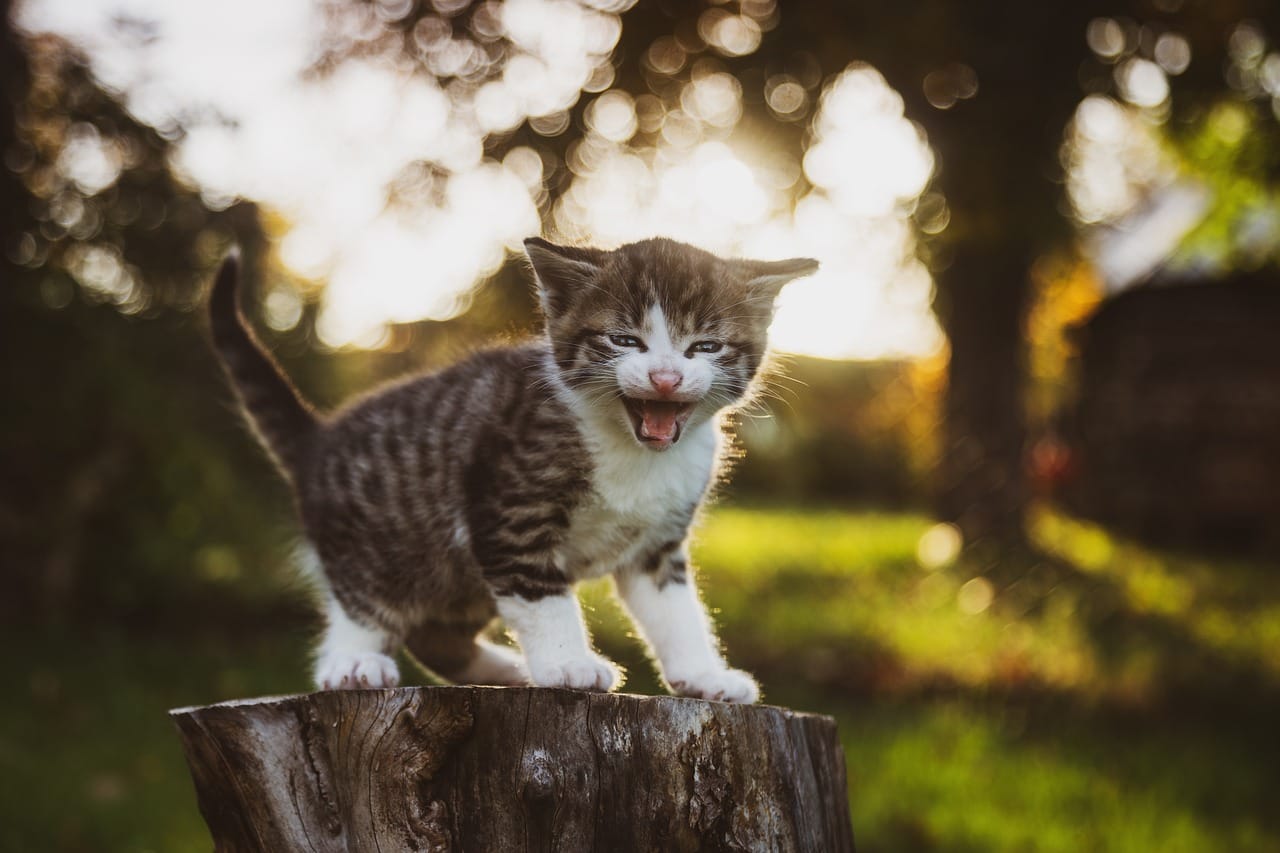How To Get Your Kitten To Stop Biting ?

How To Get Your Kitten To Stop Biting? Learn proven techniques to stop kitten biting behavior. Get a happy, playful kitten without the ouch! Effective tips for kitten biting & how to manage it.
How To Get Your Kitten To Stop Biting: A Comprehensive Guide
Bringing a new kitten into your home is incredibly rewarding, but it can also be challenging. One of the most common problems new kitten owners face is kitten biting. Those tiny needle-sharp teeth can inflict surprisingly painful scratches and bites, making playtime less fun for everyone involved. This comprehensive guide will walk you through various techniques to address how to get your kitten to stop biting, ensuring a happy and harmonious relationship with your feline friend. Learning how to stop kitten biting requires patience, consistency, and understanding your kitten’s behavior.
Understanding Why Kittens Bite
Before we delve into solutions for how to get your kitten to stop biting, it’s crucial to understand *why* kittens bite in the first place. It’s rarely out of aggression or malice. Instead, several factors contribute to this behavior:
- Teething: Like human babies, kittens go through a teething phase. Their gums can be itchy and sore, leading them to bite to relieve discomfort. This is a common reason behind excessive kitten biting.
- Play and Exploration: Kittens use their mouths to explore the world. They’ll bite and chew on anything that catches their interest, including your hands and feet. This is a normal part of their development, but it needs to be redirected.
- Over-excitement: When kittens get overly excited during play, their bite inhibition can decrease. This means they don’t regulate the force of their bite as well. This is a frequent cause of unexpected painful kitten biting incidents.
- Lack of Socialization: Kittens who haven’t been properly socialized with humans may be more prone to biting because they haven’t learned appropriate interaction skills. Early socialization is key to preventing stop kitten biting issues later on.
- Fear or Anxiety: Sometimes, biting can be a sign of fear or anxiety. If your kitten feels threatened or cornered, biting might be its defensive mechanism. This is especially true if the kitten hasn’t been properly socialized and hasn’t learned to trust people.
Effective Strategies to Stop Kitten Biting
Now that we understand the reasons behind kitten biting, let’s explore effective strategies to curb this behavior. Remember, consistency is key. You need to be consistent with these methods for them to be effective.
1. Redirect the Behavior
When your kitten starts biting, immediately redirect its attention to an appropriate chew toy. Offer a tempting toy that mimics the texture and feel of your hand or clothing – a toy mouse, a rope toy, or a crinkle toy may do the trick. Praise and reward your kitten when it plays with the toy instead of biting you. This teaches it that toys, not your hands, are for biting.
2. The “Yelp Method”
This method uses a sudden, high-pitched yelp to simulate the pain a kitten would feel if it bit another kitten too hard. When your kitten bites, let out a loud, dramatic “OW!” This might surprise your kitten and cause it to pause. Immediately withdraw your hand and ignore the kitten for a short period. This helps the kitten associate biting with the end of playtime. The goal isn’t to scare the kitten, but to clearly communicate that biting is not acceptable.
3. Time-Outs
If redirection and the yelp method aren’t working, try a time-out. When your kitten bites, calmly pick it up and gently place it in a separate, quiet room for a few minutes (a carrier works well). Avoid punishing the kitten. The time-out is meant to interrupt the unwanted behavior and give your kitten a chance to calm down. After the time-out, re-engage in positive play.
4. Play Regularly (and Appropriately)
Play is essential for channeling your kitten’s energy and teaching bite inhibition. Use interactive toys like wands or feather teasers to engage your kitten in vigorous play sessions. These sessions should tire your kitten out, reducing its inclination to bite. Avoid using your hands in these sessions. Remember, this is a crucial aspect of learning how to stop kitten biting.
5. Positive Reinforcement
Reward your kitten for good behavior with treats, praise, and petting. When your kitten is gentle, make a big fuss over it. This positive reinforcement reinforces the desired behavior and makes it more likely that your kitten will repeat it. Positive reinforcement is a vital aspect of all training, including addressing issues such as how to get your kitten to stop biting.
6. Consult a Veterinarian
If your kitten’s biting persists despite your best efforts, consult a veterinarian. Excessive biting could indicate an underlying medical issue, such as pain or discomfort. A vet can rule out any medical problems and provide further guidance. Sometimes, underlying medical reasons need to be addressed before you can truly address the stop kitten biting issue effectively.
7. Provide Plenty of Enrichment
A bored kitten is more likely to bite. Provide your kitten with plenty of opportunities for exploration and play, including climbing structures, scratching posts, and puzzle toys. A well-stimulated kitten will be less prone to misbehaving. Environmental enrichment is often overlooked, but addressing this factor is crucial when considering how to get your kitten to stop biting.
Long-Term Strategies for Preventing Kitten Biting
Addressing how to get your kitten to stop biting is not just about immediate solutions; it’s about establishing long-term habits. Here are some tips to help prevent future biting problems:
- Early Socialization: Proper socialization is crucial. Expose your kitten to various sights, sounds, and people from a young age to build confidence and reduce fear-based biting.
- Consistent Training: Maintain consistency in your training methods. Everyone in the household should follow the same rules and techniques to avoid confusing your kitten.
- Ongoing Enrichment: Continue providing a stimulating environment for your kitten to prevent boredom and encourage appropriate play.
- Regular Vet Checkups: Regular vet checkups are essential to monitor your kitten’s health and address any underlying issues that might contribute to biting.
Remember, consistent effort is vital. Dealing with kitten biting requires patience and understanding. By consistently applying these methods, you’ll help your kitten learn appropriate social interaction, ensuring a joyful and harmonious relationship.
For further reading on feline behavior and training, I highly recommend checking out the resources available at the ASPCA. They offer a wealth of information on various aspects of cat care.
Another excellent resource is the Cornell University College of Veterinary Medicine website, which provides evidence-based information on feline health and behavior. They often have articles covering topics like kitten biting and socialization.
Finally, the Humane Society of the United States website provides valuable information on responsible pet ownership, including training tips and resources to help you create a loving and safe environment for your feline companion.
Share Your Experiences!
Have you successfully tackled how to get your kitten to stop biting? Share your experiences, tips, and tricks in the comments below! Let’s create a supportive community to help each other navigate the joys and challenges of kitten ownership. What strategies worked best for you? What were your biggest challenges with stop kitten biting? We’re eager to learn from your journey!

10 FAQs: How To Get Your Kitten To Stop Biting
1. Q: My kitten bites me playfully, but it hurts! How do I get them to stop?
A: Playful kitten biting is common, but needs redirection. When your kitten bites, immediately stop playing and give a firm “No!” or “Ouch!” Withdraw your hands completely for a few minutes. Offer an appropriate chew toy instead. This teaches them that biting ends playtime. Learn how to get your kitten to stop biting through consistent training.
2. Q: My kitten bites hard, even when I’m not playing. How do I address this aggressive biting?
A: Aggressive biting requires a different approach. Ensure your kitten has enough enrichment (toys, climbing structures). A stressed or understimulated kitten is more prone to biting. Consult a vet to rule out medical causes. Avoid punishment; instead, redirect to appropriate toys and use positive reinforcement techniques when they behave well. Learning how to stop kitten biting often involves identifying the root cause.
3. Q: What are the best toys to help stop my kitten from biting?
A: Offer a variety of textured toys: rope toys, crinkle balls, stuffed mice, and even cardboard tubes. Rotating toys keeps them engaging. Interactive play with wands or fishing rod toys helps satisfy their hunting instincts, reducing the urge to bite your hands. Choosing the right toys is a crucial part of learning how to get your kitten to stop biting.
4. Q: My kitten only bites my hands and feet. Why is this?
A: Kittens see hands and feet as interactive playthings. They’re exploring and learning through their mouths. Redirect this behavior by offering appropriate toys when they start biting your extremities. Always make yourself less exciting when they bite – ignore them until they calm down. Consistent use of these strategies is key to stopping kitten biting.
5. Q: Is it okay to punish my kitten for biting?
A: No, punishment is usually counterproductive. It can make your kitten fearful and increase aggressive behavior. Focus on positive reinforcement, rewarding good behavior with treats and praise. Ignoring the biting and redirecting to appropriate play is much more effective in learning how to get your kitten to stop biting.
6. Q: How long does it take to stop kitten biting?
A: Consistency is key. It may take several weeks, or even months, to completely curb biting. Be patient and persistent with your training. The time it takes to stop kitten biting depends on the kitten’s age, temperament, and the consistency of your training efforts.
7. Q: My kitten is only a few weeks old and biting constantly. What should I do?
A: Very young kittens may bite more frequently due to teething and exploring their world. Continue with positive reinforcement techniques, but be extra patient. Offer a variety of safe chew toys. If the biting is excessive, consult your vet to rule out any underlying health issues. Understanding kitten development is crucial in learning how to get your kitten to stop biting.
8. Q: My kitten bites when I try to pet them. How can I fix this?
A: This could be a sign that your kitten doesn’t like the way you are petting them. Try petting them gently in areas they prefer, such as under the chin or behind the ears. If they start to bite, stop petting immediately. Pay close attention to their body language to avoid triggering negative responses. Proper handling is a crucial part of how to get your kitten to stop biting.
9. Q: Should I declaw my kitten to stop biting?
A: Declawing is a painful and controversial procedure that’s not recommended as a solution for biting. It removes a significant part of the cat’s bone and can lead to long-term health problems and behavioral issues. Focus on training methods to address the biting behavior instead. This is never a solution to how to stop kitten biting.
10. Q: When should I seek professional help for kitten biting?
A: If your kitten’s biting is severe, aggressive, or doesn’t improve despite your efforts, consult a veterinarian or certified cat behaviorist. They can help you identify the underlying cause and develop a tailored training plan. Professional guidance can greatly enhance your understanding of how to get your kitten to stop biting.

How to Stop Your Kitten from Biting: Practical Tips and Health Considerations
Kitten biting is a common problem, but with patience and understanding, you can teach your furry friend to curb this behavior. This guide offers practical tips and addresses potential underlying health issues.
Understanding Why Kittens Bite
Kittens bite for several reasons: teething, exploring their world through their mouths, play, and excitement. It’s crucial to distinguish between playful nips and aggressive biting. Playful nipping is usually less forceful and accompanied by other playful behaviors. Aggressive biting is harder, may involve growling or hissing, and indicates a more serious problem.
Practical Tips to Stop Biting
1. Positive Reinforcement:
Reward good behavior. When your kitten is playing gently, praise them and offer a treat. This positive reinforcement encourages gentle interactions.
2. Controlled Play:
Use appropriate toys like wand toys, crinkle balls, or stuffed mice. This directs their biting instinct to appropriate targets. Avoid using your hands as toys.
3. “Ow!” Technique:
When your kitten bites too hard, say a firm “Ow!” and immediately withdraw your hand. This mimics the reaction of another cat, teaching them that biting hurts and results in the end of play.
4. Time-Outs:
If biting persists, gently place your kitten in a separate, quiet area for a few minutes. This isn’t punishment, but a brief break to calm them down.
5. Plenty of Enrichment:
A bored kitten is more likely to bite. Provide plenty of toys, scratching posts, climbing structures, and interactive playtime to keep them engaged and entertained.
6. Kitten-Proofing:
Remove tempting objects that might encourage biting like dangling cords or loose fabric.
Health Considerations
While most biting is normal kitten behavior, persistent or aggressive biting can indicate underlying health issues. Consult a veterinarian if:
- Biting is excessively aggressive or frequent.
- Your kitten exhibits other behavioral changes, such as increased fear or aggression.
- Your kitten is displaying signs of illness like lethargy, loss of appetite, or changes in litter box habits.
Early intervention is key to addressing any potential health problems and ensuring your kitten grows into a well-adjusted companion.
SEO Keywords:
kitten biting, stop kitten biting, kitten aggression, playful biting, kitten behavior, teething kitten, cat biting, kitten training, prevent kitten biting, kitten health